I love my family–don’t get me wrong. They’re great and all and I know how much they do for me…. I just wish I had my freedom.
Being seventeen years old is not at all like it is in the movies. I don’t have a car; I can’t even drive for crying out loud! I can’t leave the house because it appears my life is so important to everyone else. My parents ask me every single detail about my day: Where are you going? Who are you going to be with? Are they good students? When are you going to be back? It’s all just so annoying. I want to have a life like all the other teenagers in the world. They get to hang out with friends and ride in the back of trucks while I sit inside bored to death. I want to take an epic day off school like Ferris Bueller. I want to go van surfing like in Teen Wolf. I want to go to an awesome party like in Risky Business. Why can’t life be easier?
“Jan, dinner!” Mom calls from downstairs, breaking my train of thought.
I exit my room and, on the way down, my eye catches the family portraits. Mom, Dad, my sister and, me. Now really, what I hate most about my sister being away for college is having every single dinner conversation being centered on me. Like, if we’re going to do that, let’s make it fun and talk about Back to the Future. But no, we have to talk about college crap and grades, and whatever else my parents think teenagers should be talking about. It always ends up the same way–with me in tears.
I walk into the kitchen and sit down at the dinner table. Mom puts the plate of food down right in front of me–chicken and vegetables. A dreadful meal for the dreadful conversation that’s yet to come. I dig my fork into the mushy vegetables as she sits down in her chair.
“So, are you going to tell your father your marks?”
“I got a B- on my biology exam,” I say quietly, staring at my dad across the table. My mother cuts me off.
“Just tell him the final marks,” she says.
“I finished with a C+ in English, a C+ in biology, an A+ in gym and a B in marketing.”
“Oh well you didn’t get a B in English, so I guess you’re going to summer school then,” my dad says as he cuts into his chicken.
“But you said I had to get a B on just the summative.”
“No, a B in the class.” He says as he leans down for a bite.
“I could have sworn you said a B on the summative.”
“A B in the class. You’re going to summer school!”
“No! I’m not going!” I slam my hand on the table and watch as the cutlery jumps.
“Fine. But if you don’t go to summer school, you can forget about getting your license.”
“That’s the only thing I want in life right now!”
“Well you have no one to blame but yourself,” Mom says jumping into the conversation. “You didn’t do the work and you got caught lying, so now you have to pay the consequences.”
“But that’s not true!”
“Don’t lie.”
“But you don’t understand! Ugh!” I throw my hands in there air out of anger. “You’re ruining my life!”
And just like that, I run out of the kitchen and head straight upstairs to my room. I feel the tears start to run down my face. I mean, a C+ isn’t even that bad in the grand scheme of things. I’ve seen movie characters get C+’s all the time. Besides the point though, you see, my sister got a D- in math last year, and you know how they reacted? Nothing. That’s not even the worst thing. Last year she got caught plagiarizing and my parents didn’t go all gung-ho on her either. Like seriously, they really didn’t have to make it that obvious that she’s their favourite. God.
I decide to get up and take my suitcase out of the closet. I throw what I can in the bag, including my clothes and my laptop. You never know when movies will be useful! Let’s just hope the bus transportation system has Wi-Fi.
I open up my window, toss my bag down, and begin the climb down the water pipe. Once I reach the ground, I grab my stuff and walk off down the dark street. The bus stop isn’t that far away; I’m just hoping there’s a bus that comes at this time of night. The walk isn’t too long though. Right now, I’m just glad that Mom and Dad didn’t hear and come running out to get me.
I reach the bus stop and take a seat on the small bench next to an old man reading the paper. I mind my own business as the stop fills up with more and more people. My mind grows bored as the night moves on.
It’s around two am when the bus shows up. I take out the measly three dollars I have in my pocket and pay the driver, before going to take a seat in the back. Everyone seems to settle in, and we drive off.
My suitcase fills the empty seat next to me and I take out my laptop, popping my earbuds in as I open the screen. I’m just glad there’s a signal to help pass the time. I go onto one of my usual movie sites and start watching a rerun of The Breakfast Club. I feel a sort-of connection between myself and the characters. I mean, they’re trapped in detention and can’t escape. I sometimes feel like that at home.
As the night grows on, I feel my eyelids begin to grow heavy and the credits start to roll. Before I know it, the sun is rising, and the bus comes to a stop. I pack up my things and disembark. The cold morning air creeps up on me and the first thing I do is check my bag for my jacket, but I come up empty handed. I forgot it. How stupid of me.
My stomach growls, and I decide to walk into the old building directly in front of me. It turns out to be a dying soup kitchen. Must have been running since the Great Depression. I bet it doesn’t get much business nowadays. It’s all wood with a roof that looks like it would leak. There are long tables along the sides of the walls, and a few sitting in the middle. There are, however, no windows. The place is mostly empty except for a few scrawny people in tattered clothes. They give me a good stare but I ignore them and walk up to the counter. The worker puts down his newspaper and glares up at me.
“Um, can I have a bowl of soup?”
“We’re a soup kitchen. What do you think?”
He sighs, getting up from his chair to go over to the boiling pot of soup. He opens it, scooping some into an old wooden bowl. Then he throws in a spoon to go with it and pans it down the counter like someone in a fifty’s diner would do. Ignoring me, he takes his seat and goes back to his paper. I grab the bowl and sit by myself at one of the tables against the wall.
I stick the spoon into the gross looking bowl of liquified week-old cabbage. I got to give them some credit though, they’re here feeding poor people. And me. I decide to stir it around a bit, avoiding eating it despite the fact that I’m starving. Kind of like school, I don’t seem to care right now. Then, out of the corner of my eye, someone comes up and takes a seat next to me: an old man with brownish-grey hair wearing an old windbreaker jacket. He looks better than the rest of the soup citizens.
“What are you doing here?” He asks.
“People need to eat, don’t they?” I continue to stare down at the gross slop in front of me.
“A suburb kid like you? Now, you should be in school.”
“Well I’m not now, am I?”
He sighs. “Where are your parents, kid?”
“Home.”
“Where you should be.”
“Well I’m fine here now, and it’s not important.”
He continues to glare down at me as he doesn’t take the hint that I don’t want to talk.
“So, I take it you ran away from home then?”
I squint my eyes at him. “You a cop?”
“No.”
“Then yeah, why do you ask?”
He seems to sit up straighter. “Why did you run away?”
“None of your business,” I snap.
“Why?” He asks again.
“Because I felt like it.”
“You felt like it?”
“I just wanted freedom, okay?”
“Well what do you mean you wanted freedom?”
Damn, does he have to question everything?
I turn towards him and sigh. “I wanted freedom but my parents wouldn’t give it to me. Now I’m on my own. I’m free. Get it?”
“What’s the problem with your parents?”
“That’s personal!” I exasperate much more than I really need to.
“I bet it is. Listen kid, I can’t help you if I don’t know the whole story.”
“I don’t need your help.”
I run my fingers along the dusty-wooden table as he continues to talk.
“Well you don’t seem to be helping yourself either by running away.”
“I just wish they’d let me have more fun, you know?”
He blinks. “What kind of fun?”
“You know. Go out, down-town and dance on a parade float! Go back in time! Ride on the back of cars!”
“You’re like what? Seventeen? No one does that.”
“The teenagers in Dazed and Confused stayed out all night at an awesome party!” I shout.
“That’s a movie.”
“So?”
“That’s fantasy. No one does that.” He says matter-of-factly.
“People do that all the time! Are you kidding me?”
“You watch way too many movies.”
Who cares? You see, it’s more like a drug. It draws out the miserableness of normal life. But I can tell he’s waiting for a response. Instead I just sip the crummy soup.
“I’m telling you kid, you’re not missing anything.” He says, finally.
“Well what did you do as a kid?” I look back up at him.
“I had a job. I worked.”
“No, I mean, what did you do for fun?”
“Well I hung out with some friends. Just talked, nothing special.” He shrugs his broad shoulders.
“Really?” I raise an eyebrow.
“Yeah. You’re not really missing much.”
“Well my parents don’t even let me do that!”
“I’m sure they would let you.”
“You don’t know my parents.”
“Well what are they like?”
“If I want to go out, they ask me tons of questions. And I mean tons!”
“That’s expected.”
“What do you mean?” I prop up my chin with my elbow on the table, actually wanting to listen for once.
“Well they care about you, you know? They just want to know you’ll be safe.”
“I know other people who don’t get the third degree.”
“Well you should be glad you do. It shows how much your parents love you, and how much they care about you.”
“It’s a strange way of showing it.”
“You say you’re unlucky, you say you don’t have any freedom. Let me tell you, I think you’ve a very lucky girl.” He points his finger at me to get his point across.
“You do?”
“Sure. You’ve got a roof over your head, you’re fed every day, you’ve got clothes on your back. Most of all, you’ve got two parents that love you. You love them too, don’t you?”
“Well yeah, but-”
He cuts me off.
“There’s no but about it. You’re a hell of a lucky kid.”
“I want my freedom.” I take my hands away from the table and sit up straight.
“You still want freedom? I’m telling you, you don’t even know what freedom is. I mean, there are people in this world just struggling to make a buck. They should be in school, but here they are working hard to support their families.” His eyes do most of the talking as I see he’s beginning to lose some of his patience.
“You mean they can’t even watch movies?”
“Movies are nothing. You know what I see? You’re an extremely privileged kid and here you are being ungrateful.”
“That’s not true.” I cross my arms over my chest, somewhat annoyed.
“Like I said before—Someone like you doesn’t belong in a soup kitchen. You should be in school.”
I raise my voice a little too loud. “I don’t care about school! At dinner last night, my parents completely blew up at me for just a couple of bad grades!”
“They just want you to succeed.”
“Well they shouldn’t be so hard on me!” I throw my arms in the air.
I’m not getting anywhere here. I may as well be having this conversation with my parents.
“They’re hard on you because they care about you. They want you to be the best that you can be. If they weren’t as hard on you, you wouldn’t have the motivation, you see?”
I take in a breath. “Okay, maybe you’re right. Maybe I have been a little selfish lately.”
“Well selfish isn’t the word I’d use, but you get it.”
“Well thanks uh, Mr.…”
“Dupé. Mr. Dupé.”
“Right.”
I shake his hand and get up from the old wooden chair. Not bothering to finish the bowl of soup, I grab my stuff and walk out of the deserted kitchen, going back to wait at the bus stop.
This time around, there’s not a lot of people here. Not even a few minutes into waiting when the bus arrives. I hang around for a second, digging through my bag to come up with some cash. Finally, I find three and a half dollars. I get on the bus and, pay the driver and head to the back again. This time I don’t feel like watching a movie. Mr. Dupé’s words repeat in my head. He’s right—I really do watch too many movies. What I really need to do is get my head out of the clouds and dive into reality.
As I glance out the window, I notice the stop from last night. I jump up from my chair and hop off, heading down the chilly street.
When I approach my house, I notice my parents’ cars in the driveway. They didn’t go to work today. I walk inside and there they are: standing together, waiting for me. I can tell my mom’s angry. She looks like she’s about to scold me and tell me I’m grounded or something. But before she has the chance I wrap my arms around her and my dad, pulling them close.
“I love you guys,” I say.
It takes a second or two, but eventually they hug me back.
My mom kisses the top of my forehead and whispers, “We love you, too.”
HUNTER P. THOMPSON is a writer from Oakville. She has a huge passion for it and has been writing since she was a child. Hunter aspires to write screenplays in the future. Her work covers a variety of genres including comedy, drama, science-fiction and, horror.
Copyright © 2019 Hunter P. Thompson. All rights reserved.

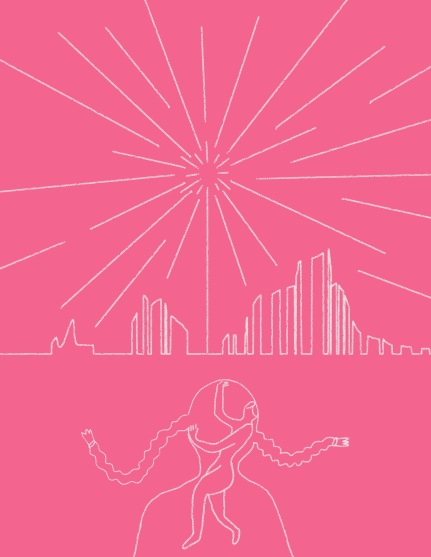

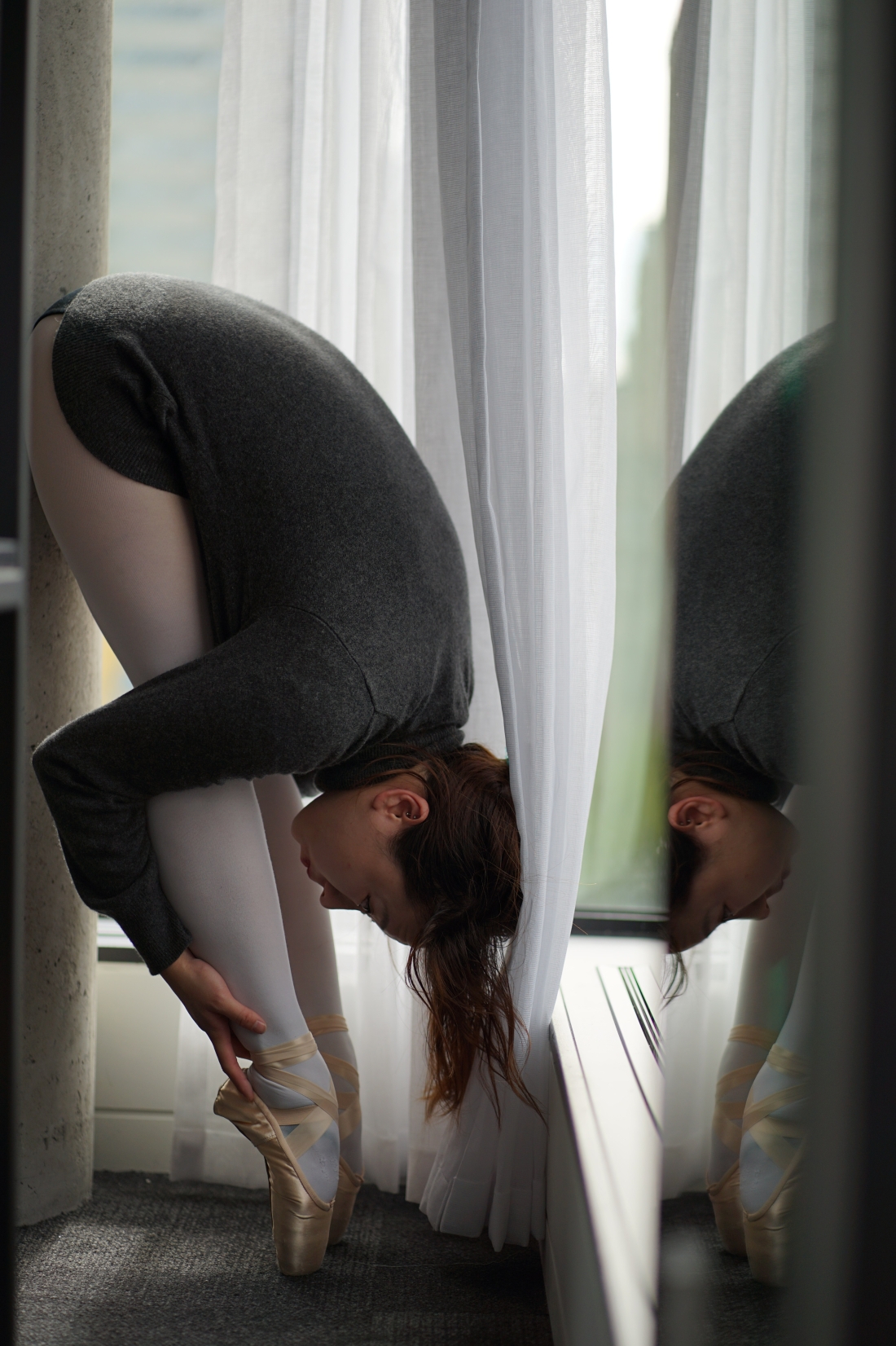
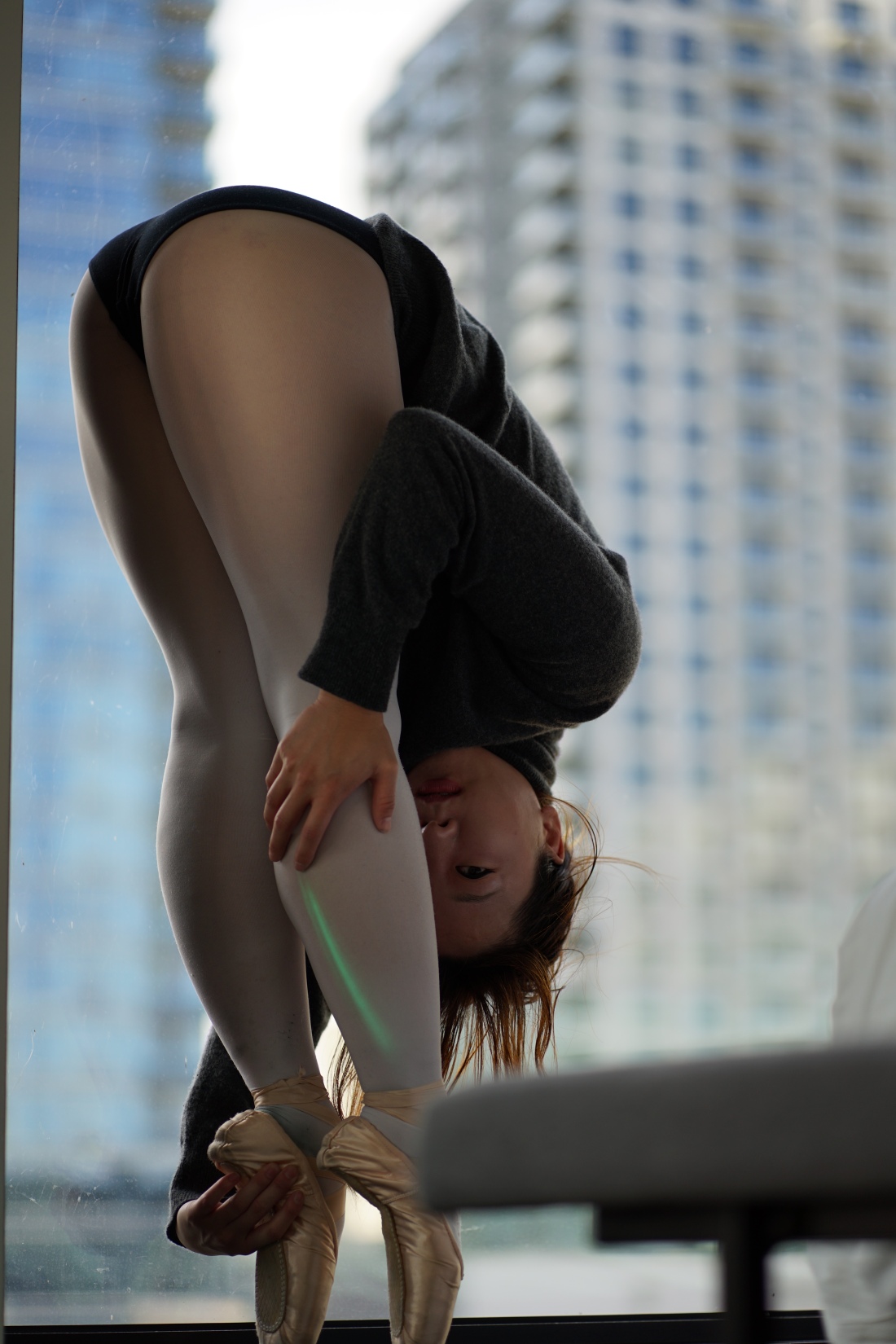
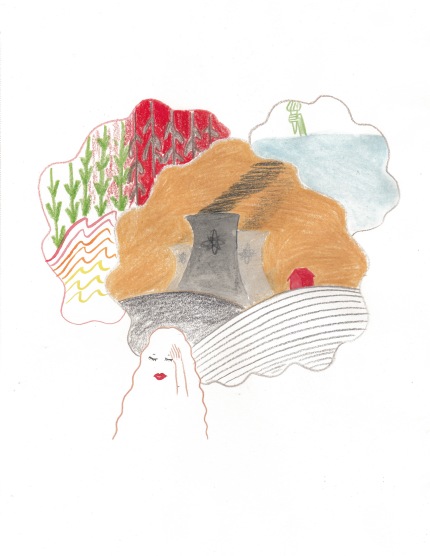


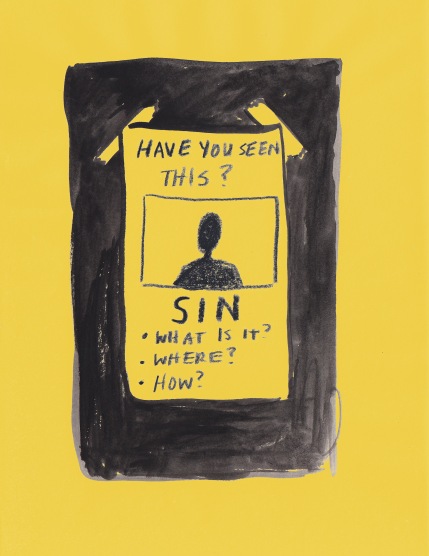
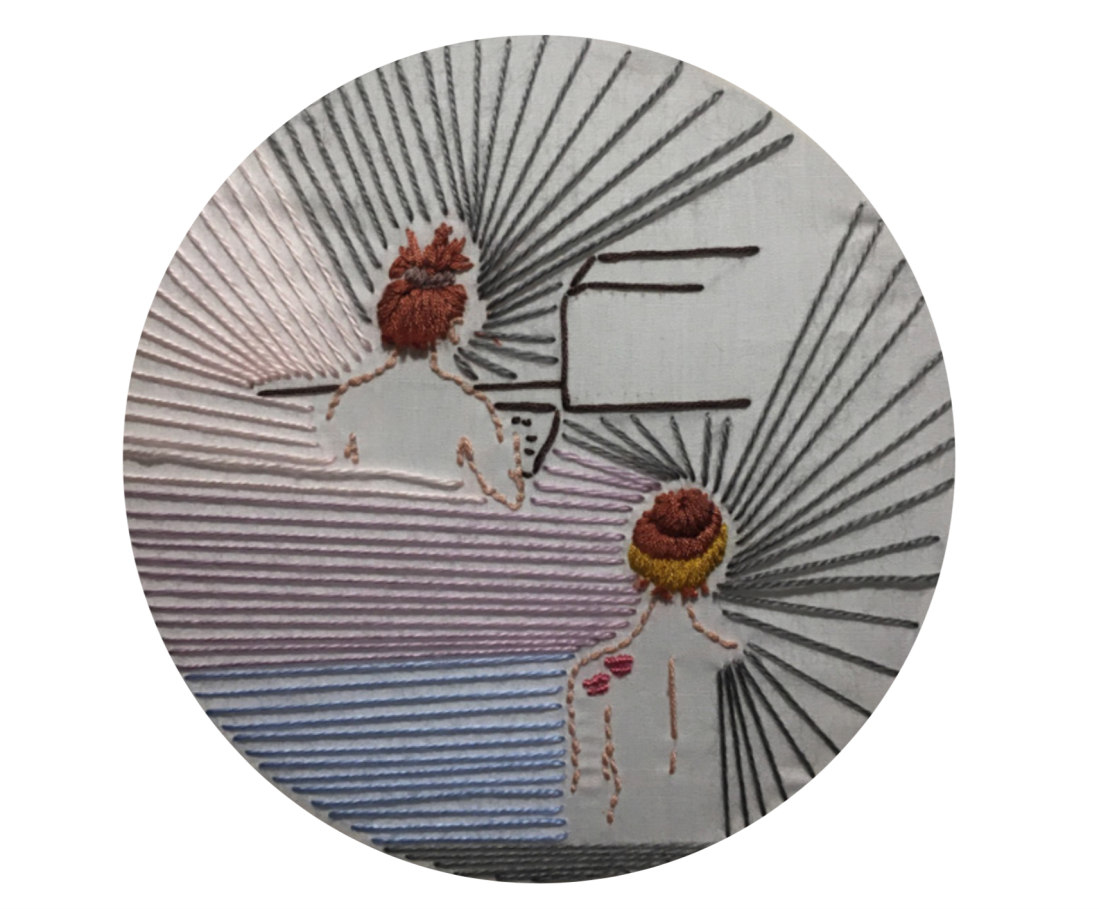
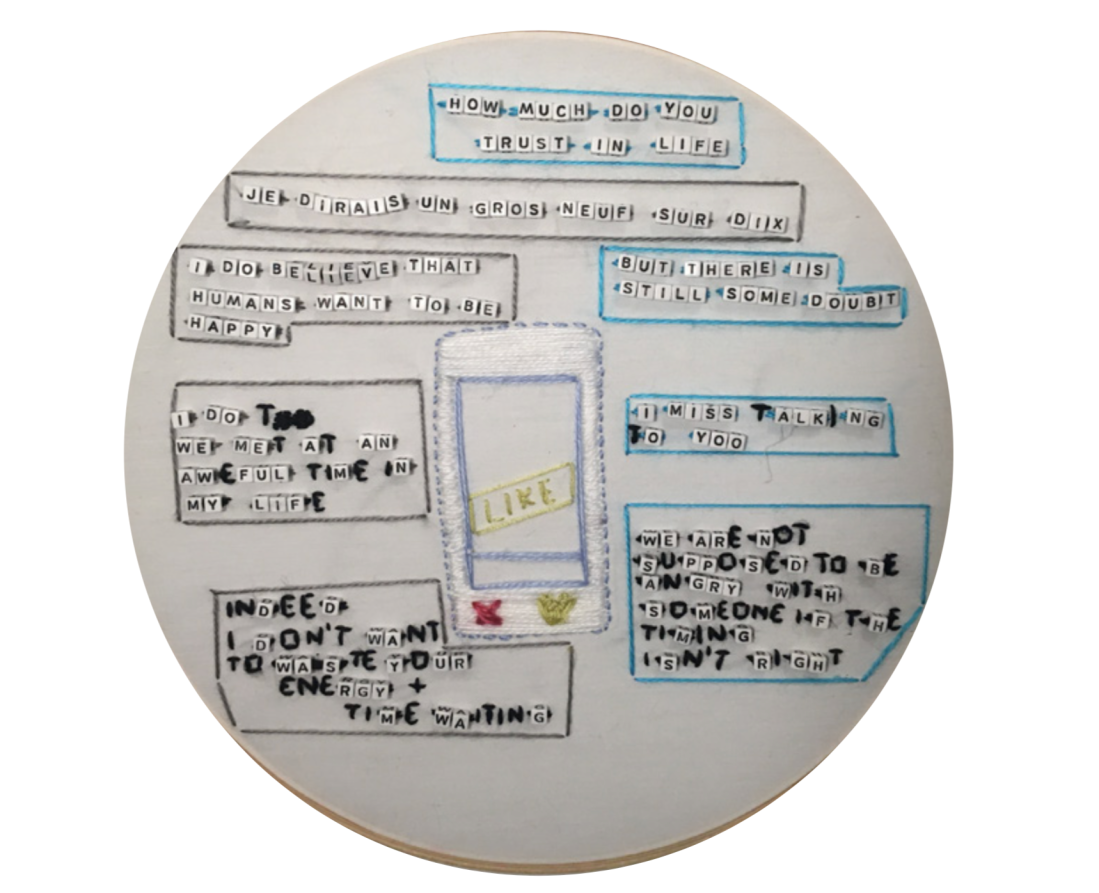

You must be logged in to post a comment.